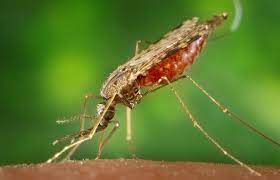The National Malaria Elimination Program ( NMEP) of the federal ministry of health says that the use of mono therapy for malaria treatment remains prohibited in the country.
Program officer of NMEP, Wudi Natasha Tanko stated this Thursday during a media chart organized by the organization in Abuja.
She said monotherapy refers to the use of only one antimalarial medicine to treat malaria such as artesunate and artemeter injection, chloroquine and sulfadoxine/pyrimethamine (SP).
She said, ” monotherapies are not recommended for treatment of uncomplicated malaria and cannot cure. Chloroquine and SP are failed drugs with 39% and 56% efficacy respectively. Artesunate and artemeter injection have very short half live. They attack malaria parasite fast but do not sustain in the body to mop up residual parasites.
“Use of mono therapies for uncomplicated malaria is abuse.”
- FG to launch programme for unemployed Nigerians
- FG targets more revenue from taxes as Tinubu sends 4 bills to N/Assembly
She said dangers of the use of mono therapies is incomplete cure, increased disease severity and development
of drug resistance.
She highlighted that Artemisinin-based combination therapies ( ACTs) are the recommended treatments for uncomplicated malaria. She added that ACTs are medicines consisting of an artemisinin derivative and another schizonticidal antimalarial medicine.
She also said malaria cannot be diagnosed based on clinical (signs and symptoms) assessment alone , adding that diagnosis requires testing confirmation of a clinical suspicion.
Wudi said, ” Case management intervention through prompt diagnosis and treatment with recommended antimalarial is pivotal for reduction of malaria burden.”
Nigeria accounts for 27% of global cases and 31% of deaths.
Progress has been made in the control of malaria burden as reflected in the National Malaria Indicator Survey (NMIS) reducing from 42% in 2010 to 22% in 2021.

 Join Daily Trust WhatsApp Community For Quick Access To News and Happenings Around You.
Join Daily Trust WhatsApp Community For Quick Access To News and Happenings Around You.


